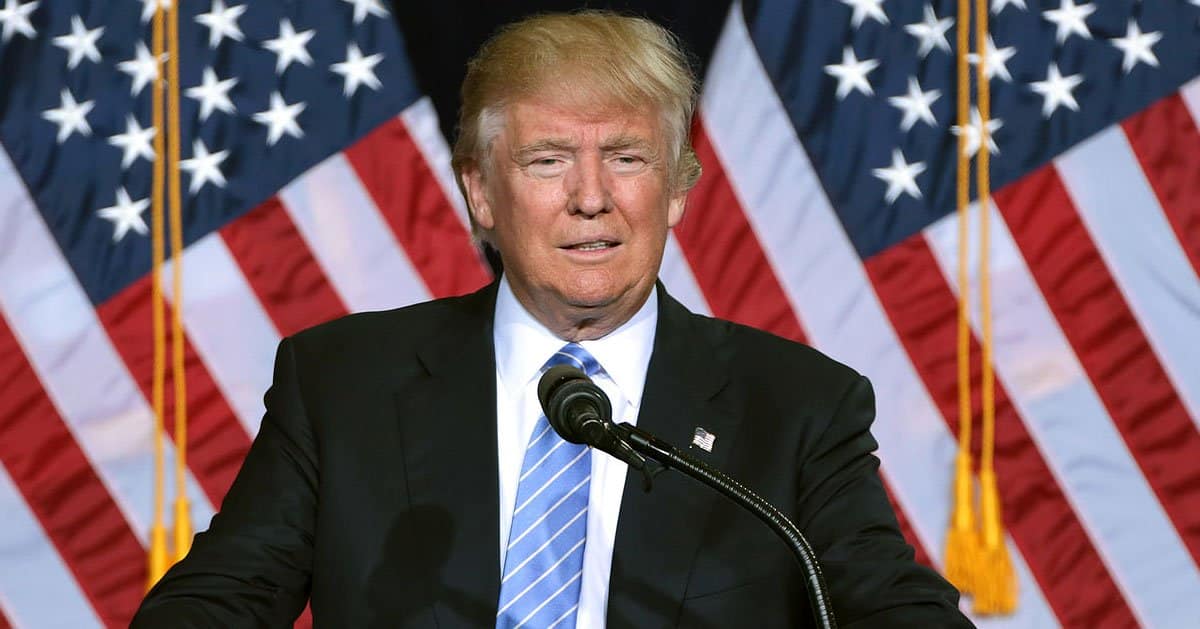







Four years after the tragic Abbey Gate bombing, President Donald Trump etched the day into history with a solemn proclamation.
On Monday, Trump stood at the Resolute Desk, surrounded by Gold Star families, to honor the 13 U.S. servicemembers lost in the 2021 Afghanistan withdrawal. The ceremony was a stark reminder of a chaotic exit that still stings.
Breitbart reported that Trump signed the proclamation to mark the fourth anniversary of the attack, which claimed 11 Marines, one sailor, and one soldier during the Biden administration’s Afghanistan pullout.
Vice President JD Vance and Defense Secretary Pete Hegseth joined the Gold Star families in a moment of shared grief. The event was both a tribute and a pointed critique of past decisions.
The bombing at Kabul’s Hamid Karzai International Airport on August 26, 2021, left a scar on the nation’s psyche. Roughly 32 servicemembers suffered devastating injuries, including the loss of arms and legs. Trump’s proclamation aimed to ensure their sacrifice is never forgotten.
Among the fallen was Marine Corps Staff Sgt. Darin T. Hoover, 31, from Salt Lake City, and Sgt. Johanny Rosario Pichardo, 25, from Lawrence, Massachusetts.
Marine Corps Sgt. Nicole L. Gee, 23, of Sacramento, and Cpl. Hunter Lopez, 22, of Indio, California, also perished. Their names, read aloud, carried the weight of lives cut short.
Marine Corps Cpl. Daegan W. Page, 23, from Omaha, and Cpl. Humberto A. Sanchez, 22, from Logansport, Indiana, was among the 13 honored.
Lance Cpls. David L. Espinoza, 20, of Rio Bravo, Texas, and Jared M. Schmitz, 20, of St. Charles, Missouri, also fell. Each name was a testament to duty and loss.
The list continued with Lance Cpls. Rylee J. McCollum, 20, of Jackson, Wyoming, and Dylan R. Merola, 20, of Rancho Cucamonga, California. Lance Cpl. Kareem M. Nikoui, 20, of Norco, California; Navy Hospitalman Maxton W. Soviak, 22, of Berlin Heights, Ohio; and Army Staff Sgt. Ryan C. Knauss, 23, of Corryton, Tennessee, rounded out the roll call.
Trump, standing with the families, called the group “very special” and noted their bond forged through shared loss. “This is a very special group of people,” he said, reflecting on meetings like one at his Bedminster Golf Club, where they lingered late over music. His words underscored a commitment to keeping their memory alive.
The proclamation wasn’t just a memorial—it was a rebuke of the Biden administration’s withdrawal strategy. Trump called August 26, 2021, “one of the dumbest days” in U.S. history, slamming the choice to abandon Bagram Airfield for Kabul’s smaller airport. The decision, he argued, amplified the tragedy.
“At a minimum, they should have been at Bagram,” Trump said, pointing to the sprawling base’s strategic advantages. He painted a picture of a safer, more defensible withdrawal that could have spared lives. The critique landed like a well-aimed dart at progressive military planning.
Beyond the 13 lost, Trump highlighted the roughly 32 servicemembers who survived with life-altering injuries. “We have, like, 32 maybe more, but approximately 32 who lost their arms and their legs,” he noted. Their resilience, often overlooked, was a focal point of the ceremony.
“We remember these great 13 souls, but we also remember the people who were so badly injured,” Trump added.
His words carried a quiet resolve to stay connected with the wounded, a promise not always kept by bureaucrats in Washington. It was a call to prioritize those who bear the scars of service.
The Gold Star families, standing behind Trump, were more than props—they were the heart of the event. Their presence was a silent demand for accountability from an administration that fumbled the withdrawal. It’s hard to ignore their pain when it’s front and center.
Trump’s relationship with these families, built over the years, added depth to the ceremony. “And these people have been my friends,” he said, emphasizing regular meetings beyond annual commemorations. It’s a rare politician who keeps showing up for the grieving long after the cameras leave.
The choice of Kabul’s airport over Bagram remains a sore point for conservatives who see it as emblematic of woke-driven missteps.
Trump’s proclamation subtly reinforced this, framing the bombing as a preventable tragedy born of poor leadership. Yet, the focus stayed on honoring the fallen, not settling scores.



